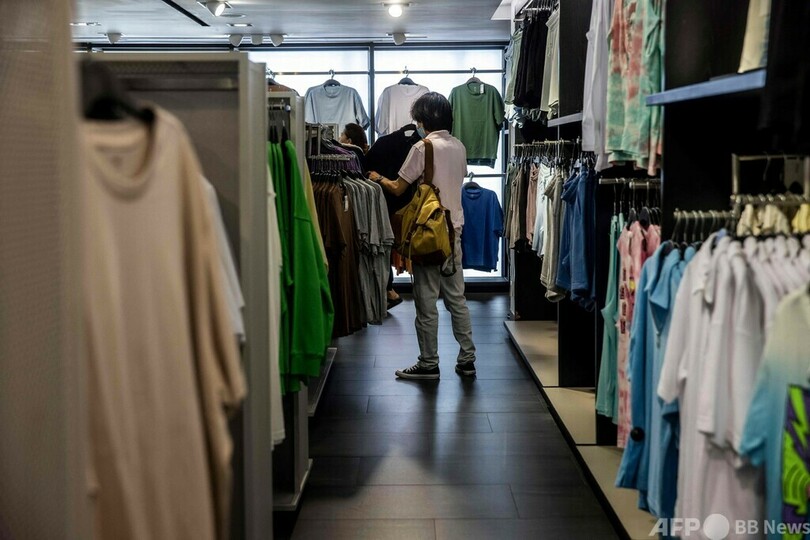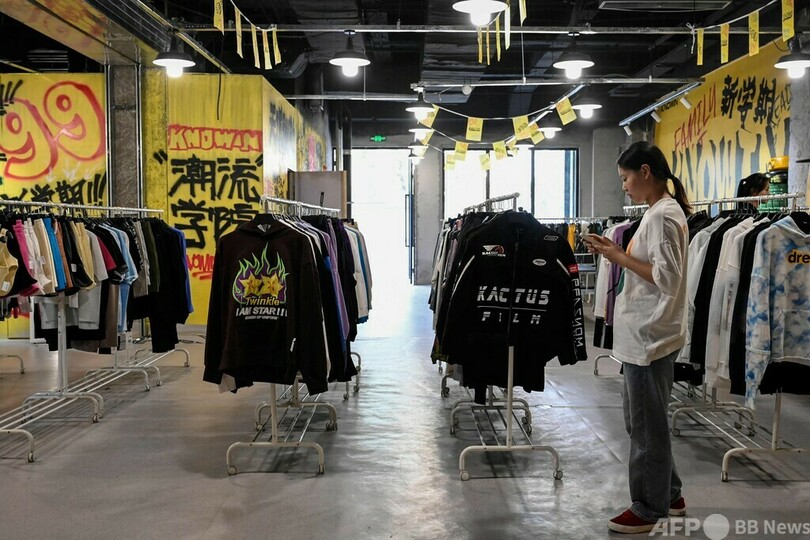September 22, 2012 (AFP) – The Chinese government recently released a draft amendment to a law that includes a ban on clothing that “hurts the feelings of the Chinese people. However, the vague definition of “offensive” has raised concerns over the interpretation and decision on the application of the law.
According to the amendment, if a person’s speech or clothing is deemed to “offend the spirit of the Chinese nation” or “hurt national sentiments,” he or she will be subject to a fine or imprisonment. However, it does not specify what types of clothing are covered.
Ms. Fu, 23, a Beijing resident, said, “I think time is needed to decide who has the right to decide and how to judge. If we are going to proceed with such a revision, we should carefully consider the criteria for judgment,” he said.
Chinese jurists are also opposed to the proposal for the same reasons as Hu.
The public is invited to comment on the proposed amendments until the 30th of this month.
Chinese police have in the past cracked down on people wearing clothing with vague charges of “selling quarrels and causing trouble” if they see politically sensitive words on the garments.
In September, a video was posted on social media showing a man wearing a skirt and live streaming in the southern city of Shenzhen being interviewed by police, sparking a debate over personal freedom of expression.
Many Internet users agreed with the police’s actions. One user commented that the man’s actions were an “attack on public morality.
■ “Historical Reasons”
Many Beijingers interviewed by AFP took the proposed amendment as a countermeasure to the fact that some people wear Japanese kimonos at historically important places and anniversaries.
In 2021, the People’s Daily-affiliated Global Times, the official newspaper of the Chinese Communist Party, reported that women were “strongly criticized and instructed” for wearing kimonos in public on December 13, a day of nationwide mourning for victims of war crimes committed by the former Japanese army.
Last year, a woman was detained by police in the eastern city of Suzhou for taking pictures in a kimono.
Ms. Hu, mentioned above, said, “Clothing is a personal choice and free, but there are special occasions,” and “If someone wears special clothes and commits an insulting act in front of a certain statue on a certain day, it is 100% intentional behavior and should be punished.
A 35-year-old man told AFP that he was in favor of punishing people for wearing offensive clothing on “special occasions.
He said, “There are certainly historical reasons for this, and we should take into account the feelings of the locals,” adding, “But in most cases, if someone is just going shopping in town [in a kimono], for example, I don’t think a special response is necessary.”
A programmer, 25, asserted, “If someone goes to the Memorial Hall for the Victims of the Nanjing Massacre by Japanese Invaders in a kimono, I think it will cause a lot of emotional distress to the Chinese people,” and “that person should be punished. I think it would cause a lot of mental anguish to the Chinese people,” he said.
Jeremy Daum, a senior fellow at Yale University’s Paul Tsai China Center, told AFP that given the number of comments he has received, “it is almost certain that the language will be significantly modified” in the proposed amendment. It is almost certain that the wording of the amendment will be significantly modified,” Daum said. It will probably focus on heroes, martyrs, and things related to the history of the Communist Party,” he said. (c)AFP/Peter CATTERALL











